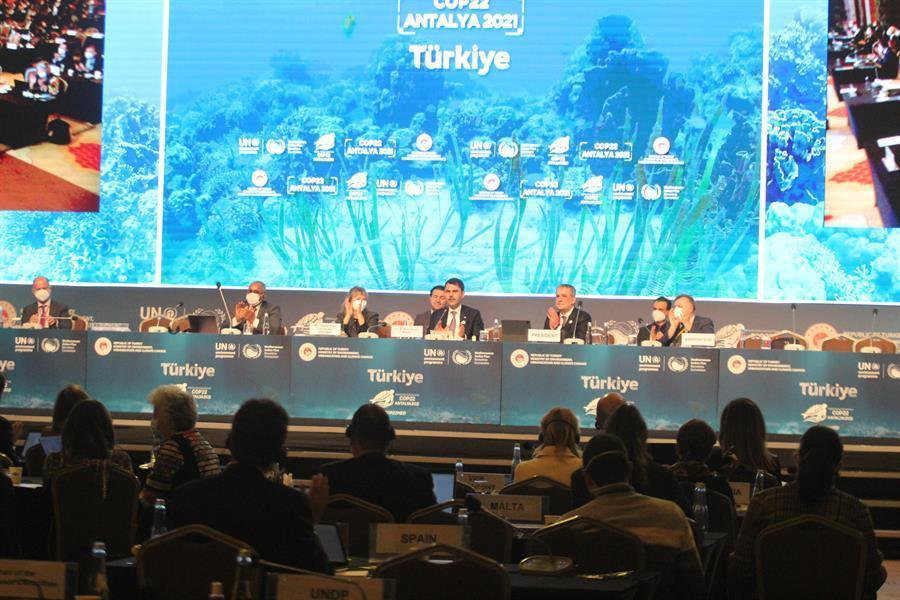
Turkey and its neighbors pledged on Dec. 10 to do a better job addressing the threats posed by pollution to people’s health and the natural habitats of the Mediterranean Sea.
From plastic waste to slimy mucilage forming on their coasts, the ring of tourism-dependent Mediterranean countries have battled a steady stream of environmental problems.
Responding to the tide of public unease, envoys from 21 regional states agreed at a four-day gathering ending Friday on Turkey’s southern coast to slash the use of sulphur in fuel for ships.
Their decision to reduce the sulphur content of the fuel to 0.1 percent from 0.5 percent in the Mediterranean will be submitted to the International Maritime Organisation.
Once approved, the cap will come into force in January 2025.
"We expect that through the implementation of this decision, there will be an important reduction of pollution coming from ships," said Tatjana Hema, coordinator of the Mediterranean Action Plan at the United Nations Environment Programe.
Mediterranean countries and the European Union hope the limit on sulphur use - the culmination of five years of talks that could provide a template for other deals-- will ultimately save lives.
Besides hurting the sea, air pollution caused by smoke-chugging ships can be linked to 60,000 premature deaths a year globally, according to some expert estimates.
Hema told AFP any cut in sulphur would have positive "socioeconomic and health" effects by reducing hazardous emissions.
The EU led the effort to reduce sulphur content in fuel, said Patrick Child, deputy director general for the environment at the European Commission.
"It’s one of the seas with the most challenging environmental biodiversity threats," he said, calling the agreement on sulphur oxides a "breakthrough".
But the list of increasingly urgent problems is long, putting pressure on regional governments.
The Mediterranean is "a hotspot for climate change", said Carlos Bravo, an ocean policy expert who works for the Swiss-based OceanCare advocacy group.
Other issues include ships colliding with marine mammals, Bravo said, since the sea is one of the most dense for shipping traffic.
Action was also needed to eliminate "bycatch", where turtles and sharks get trapped in commercial fishing nets, and to reduce noise pollution from ships that affects more than 150 species, Bravo said.